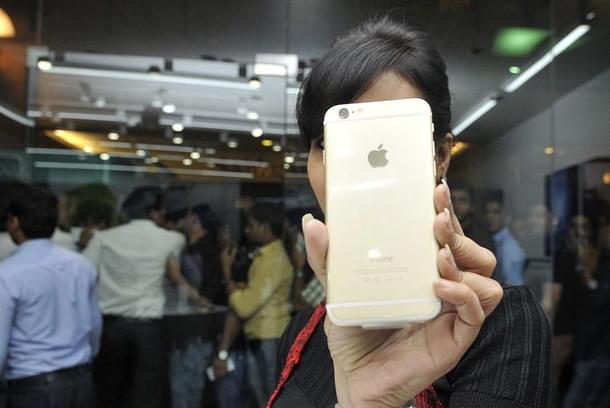Insta
As Apple Faces Decline In India, Minister Suresh Prabhu To Meet Top Executives In Davos For Pushing Local Production
Swarajya Staff
Dec 23, 2018, 02:09 PM | Updated 02:09 PM IST
Save & read from anywhere!
Bookmark stories for easy access on any device or the Swarajya app.


Commerce and Industry Minister Suresh Prabhu revealed on Friday (21 December) that he is scheduled to meet the top leadership of US-based iPhone maker Apple in Davos next month in an attempt to persuade the company to set up manufacturing facilities in India.
He said that negotiations are already on with the company, and the government can address Apple's demands for setting up its manufacturing facility in the country.
"We are still talking to Apple. Negotiations are ongoing. If they agree, we will like them to set up offices in India as well. I am meeting Apple's top leadership in Davos in early January," the minister told PTI in an interview.
"When their offer came two-three years back and today, the situation has changed for them as well as for us. So, it is a good time to meet and discuss and finalise," he added.
When asked about tax and other concessions being demanded by the company, the minister said, "We can look into that". Tax and other concessions demanded by them can be negotiated, he said, adding it is a good time for Apple to come to India, "We will be very happy to receive them."
The Cupertino-based electronics manufacturer has asked for certain concessions for setting up its manufacturing unit in the country.
Among the company's demands were duty exemption on manufacturing and repair units, components, capital equipment and consumables for smartphone manufacturing and service/repair for a period of 15 years.
The company also wanted relaxation in the mandated 30 per cent local sourcing of components, besides reduction in customs duties on completely-knocked-down and semi-knocked-down units of devices that are to be assembled in the country.
Apple does not manufacture devices on its own but gets the job done through contract manufacturers. Back in June, Apple, through its contractor, started commercial production of the iPhone 6s in India while iPhone SE production in India began last May.
Apple sells its products through company-owned retail stores in countries like China, Germany, the US, the UK and France, among others.
According to Canalys estimates the number of iPhones shipped in India has fallen 40 per cent so far this year compared with 2017, and Apple’s market share now stands at a paltry 1 per cent, down from the earlier 2 per cent. Apple India posted a dismal revenue of $1.8 billion in India this fiscal year way below at least twice the figure that the company executives were hoping for.
According to analysts, Apple’s inability to make meaningful headway in the Indian market is a result of its steadfast refusal to recalibrate its India strategy on both pricing and products. It continues to prioritise a limited number of coveted products, sold at a high price. Many smartphone manufacturers, especially Chinese competitors, have a localisation strategy in place to address Indian consumer concerns—increasing battery life, for example, and offering less expensive models.
It also has no wholly-owned store in India and sells products through distributors such as Redington and Ingram Micro.
India is also increasingly emerging as a smartphone manufacturing hub with Chinese smartphone makers such as Xiaomi, Oppo and Vivo all setting up production plants in the country. India currently 120 mobile manufacturing units, up from just two units in 2014.
Vivo recently announced that it is investing more than Rs 4,000 crores for its second production facility as part of its commitment to ‘Make in India’.
Being touted as the world's 'largest untapped market' the number of smartphone users in India is projected to double to reach 829 Million by 2022 from 400 million user base as of 2017.




